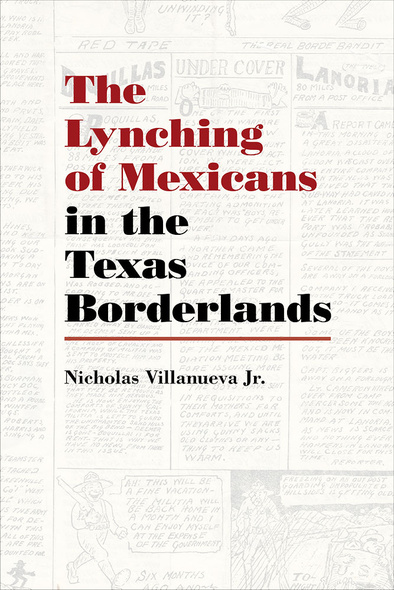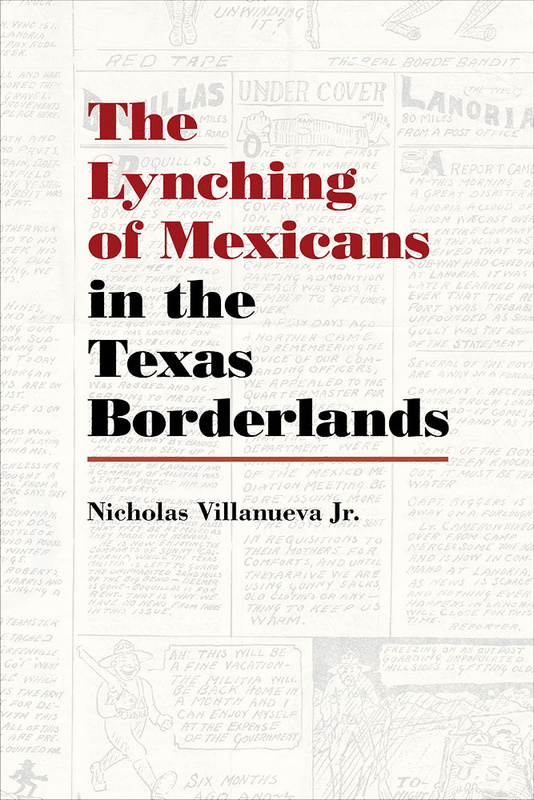
The Lynching of Mexicans in the Texas Borderlands
Winner of the 2018 NACCS Tejas Foco Non-Fiction Book Award
Winner of the 2017 Southwest Book Award from the Border Regional Library Association
More than just a civil war, the Mexican Revolution in 1910 triggered hostilities along the border between Mexico and the United States. In particular, the decade following the revolution saw a dramatic rise in the lynching of ethnic Mexicans in Texas. This book argues that ethnic and racial tension brought on by the fighting in the borderland made Anglo-Texans feel justified in their violent actions against Mexicans. They were able to use the legal system to their advantage, and their actions often went unpunished. Villanueva's work further differentiates the borderland lynching of ethnic Mexicans from the Southern lynching of African Americans by asserting that the former was about citizenship and sovereignty, as many victims' families had resources to investigate the crimes and thereby place the incidents on an international stage.
This book is an excellent examination of extreme violence Mexicans experienced along the Texas-Mexico border. . . . [A] must-read.'--Romeo Rosales, Book Riot
Reminds readers of the interesting and divergent pathways of vigilantism, retribution, sovereignty, and citizenship present along the border.'--New Mexico Historical Review
A better understanding of the history of violence against Mexican immigrants and refugees as well as American citizens of Mexican descent could not be more timely.'--H-Law
Written in clear and engaging prose, Villanueva's is a rigorous and important study that is sure to be influential in borderlands and Mexican American history.'--Pacific Historical Review
The Lynching of Mexicans in the Texas Borderlands is quite an accomplishment. . . . Villanueva's book serves as an important model for the field, with its focus on a few case studies . . . among a larger thematic framework of international affairs.'--Western Historical Quarterly
This is an important and timely study of violence against Mexicans and people of Mexican descent, which will provide historians a valuable addition to the historiography of the borderlands.'--The Journal of Arizona History
Any future scholarship of borderland studies must include this book.'--Jack Matthews, Panhandle-Plains Historical Review
Nicholas Villanueva Jr. teaches in the Ethnic Studies Department at the University of Colorado.
List of Illustrations
Acknowledgments
Introduction. Rationalizing Hate: Immigrants, Refugees, and the Increase in Mexican Lynching
Chapter One. Expatriates, Exiles, and Refugees: Social Order in the Texas-Mexico Borderland Prior to the Mexican Revolution
Chapter Two. Out of the Ashes: The Burning of Antonio Rodríguez and the Hanging of Antonio Gómez
Chapter Three. The Legal Lynching of Leon Martínez Jr.
Chapter Four. The Devil and the Bandit in the Big Bend: Ranch Raids and Mob Violence in West Texas
Chapter Five. World War I and the Decline of Mexican Lynching
Conclusion. Toward a Mexican American Civil Rights Movement
Notes
Bibliography
Index




